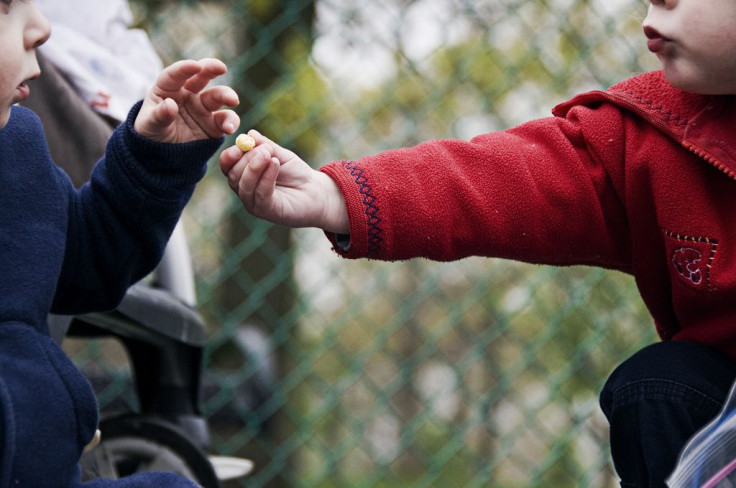Children Are More Generous To Rich Friends Than Poor Strangers: What Motivates Altruistic Behavior?

While you may think your child is an altruistic little angel, a new study from Ludwig-Maximilians-Universitaet Muenchen in Germany suggests otherwise. According to research, when it comes to sharing, kids prefer to help out their own friends before reaching out to a needier acquaintance or stranger.
Children learn to share at a young age, but little is known about the internal thoughts and motivations that serve as a catalyst for this behavior. To further investigate, Dr. Markus Paulus, Professor of Developmental Psychology and the Psychology of Learning in Early Childhood at LMU developed three experiments to distinguish if friendship or morality played a larger role in young children’s decision to share.
For the first experiment, the team had 23 three and four-year-olds and 24 five and six-year-olds name a good friend and someone they did not enjoy playing with. Following this, the children were told that their friend had a supply of around 100 brightly colored stickers while the child they did not play with only had three. They were then asked to give their own stickers to a child. Results showed that, although the young children were well aware of the sticker-wealth gap between their two peers, they still strongly preferred sharing with their friends who already had many stickers to sharing with a child with far fewer stickers whom they did not consider to be a friend.
“This clearly shows that, in both age groups, willingness to share is primarily dependent on the giver's social relationship with the potential recipient," study author Dr. Markus Paulus explained in a recent statement.
For the second experiment, a new group of children belonging to the same age groups were told that they had four stickers to share. The children were given the choice of giving one sticker to the poor non-friend and three to the wealthy friend, or vice versa. Once again, the wealthy friend usually received more stickers than the poor non-friend.
In the final experiment, which also consisted of a new group of children in the same age bracket, the researchers switched up the factors a bit and now had the children choose between sharing with a wealthy friend and a poor stranger they had never met. In this case, the children were more generous to the stranger than they had been to the non-friends in previous experiments, and this tendency to share with strangers was stronger in older children than in younger.
"This indicates that the significance of social relationships actually increases as the children get older," explained Paulus.
Despite the increased generosity to the impoverished stranger, the friends still received the majority of the stickers. Based on the results of all three experiments, Paulus was able to determine that friendship was a bigger motivator to share than fairness. While the object of wealth was just colorful stickers, Paulus believes the results suggest how children would behave if the resources at hand were more life-saving, such as food and water.
However, before you lose complete faith in the future generations, know this: Paulus predicted that the children might have been motivated to share more with the poor children if they had a chance to speak with them about what it felt like to be in a disadvantaged situation. Past research has suggested that pre-school children are highly influenced by sympathy.
Source: Paulus M. Friendship Trumps Neediness:The Impact of Social Relations and Others’ Wealth on Preschool Children’s Sharing. Journal of Experimental Child Psychology . 2016.
Published by Medicaldaily.com



























